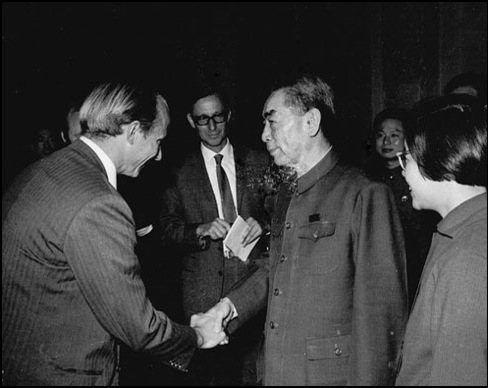Impressions of China: political stagnation and an economy transformed

The economic progress has been even more impressive than what I, for one, had been led to believe – complex four or even six lane highway systems plus bullet train systems linking major cities; endless rows of high-rise around even minor towns or cities; broad car tunnels running miles under major rivers; enormous, smoothly functioning airports, EVs everywhere to the point where one wonders what happened to their gasoline equivalents, bright fashions replacing dour Mao suits.
Our media seems to prefer to ignore the recently built Three Gorges dam even though it is the world’s largest by far. It provides non-air polluting power for Shanghai and much of the lower Yangtze River basin.
But with the politics, we were still back in the sixties. According to our guides, Chairman Mao gets the credit for the pingpong diplomacy. In fact the credit should go to an enlightened premier Zhou Enlai who courageously pushed it through as a way to overcome the post-1966 Cultural Revolution isolation and damage inflicted in the name of Chairman Mao. President for life Xi Jinping gets the credit for the economic progress which his policy mistakes hopefully will not unduly harm.
The history museum occupying an entire floor of yet another of the 200-300 storey buildings littering the Shanghai landscape manages to make no mention of Japan’s cruel China invasion which began with the August 1937 bombing of Shanghai. When I asked why I was told that in today’s China things ugly or controversial in the history are avoided. Ditto for anything that hints of mistakes in China’s policies over the years.
This is the Chinese puzzle – the nation that has made such extraordinary progress at the level of highways and tunnels is capable of such egregious political mistakes. Chairman Mao’s Great Leap Forward was one obvious example; it ended up with needed pots and pans thrown into backyard furnaces to produce useless clods of pig iron.
The Cultural Revolution that some of us also saw during the 1971 pingpong visits, had thrown an entire nation into chaos, with factories producing slogans rather than goods.
Mistakes continue with the damaging overkill of the Covid lockdowns, for example, or the rampant over-building now threatening both the economy and the property market, or the cruel one-child policy which the leadership is now trying desperately to reverse.
One of the sadder sights of today’s China is middle-aged parents doting over the one son or daughter they were allowed to have ten-twenty years ago, with the leadership now coming to realise the harm from the rapid population decline it caused.
China’s top down style of leadership may have some advantages. But an ability to correct mistakes is not one of them. The efforts of China’s millions were needed to overcome the damage caused by their leaders.
Australian politicians also make mistakes. One was the attempt by the Coalition government in 1971 to block the pingpong opening to China. Efforts by some private individuals, including myself, were needed to get a team into China.
Sadly age, cost and other reasons badly reduced the number who could join our anniversary tour. But we got to visit some of China’s best sporting facilities, and enjoy endless banquets. An interview with a Shanghai TV station was nationally televised.